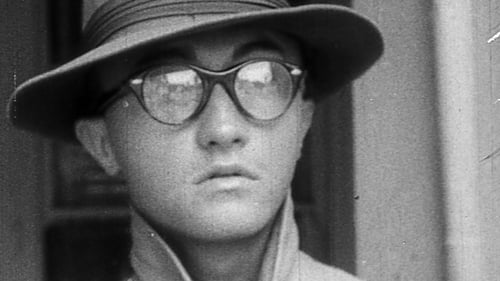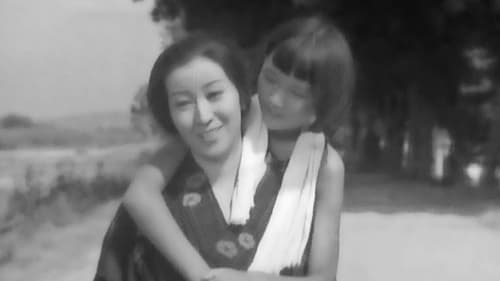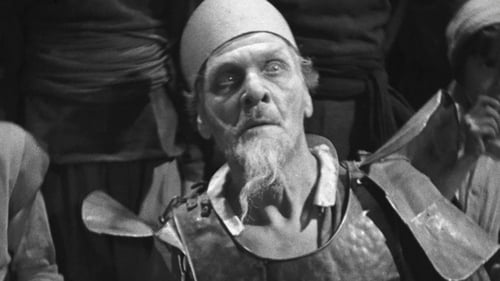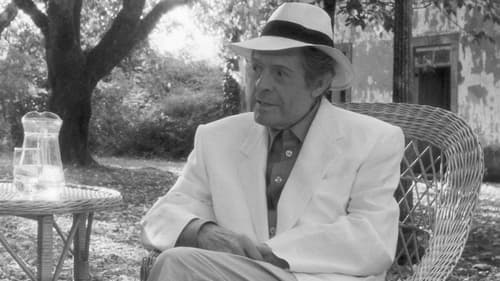Contactos (1970)
Gênero : Drama
Runtime : 1H 10M
Director : Paulino Viota
Escritor : Santos Zunzunegui, Javier Vega
Sinopse
A man and a woman living in the same pension, but different rooms, grow intimate behind the landlady's back.

"UNEMPLOYMENT DAY: MARCH 6th 1930." "Contingents of marchers arriving at Tower Hill." A long column of marchers carrying banners moves through great crowds (89); CS of a girl selling the 'Daily Worker' (99). "the Workers' International Relief food kitchen." Men and women eating sandwiches and drinking tea dispensed from the back of a lorry (190): a further shot of the assembled crowds (213). "A London docker speaks". A shot of his audience (223). "A women's contingent." A group of women hold up a banner which reads 'Thousands of children die of starvation in Britain - we demand bread (235); a speaker talks to the crowd (259). The demonstrators proceed to the Mansion House. The procession moves on (305).

Salva working as security guard in an industrial estate on the outskirts of Madrid. There he meets Leo, a girl who makes a living collecting cardboard. Gradually Salva be falling in love for the young, but the life of Leo holds a dark past.

Two kinds of starfish, the brittle and the feather. The brittle star moves its arms alone, without the aid of suckers. Underneath is a single opening. Stalks move food close to the mouth and move waste away. We see vents, used in reproduction and breathing. We watch the hatched young expelled into the water. The camera shows us brittle stars' intricate patters. We observe feather stars in clusters, like ferns. One turns over slowly; arms have branches with stalks for breathing and gathering microscopic food. Reproductive organs are inside branches. We see eggs develop at 1,400 nature's speed. Larvae emerge, 0.1 mm long. They grow. A feather star takes a walk.

A couple of young university students decide to spend the day in Toledo, in order to forget a little of the routine in which they are. At nine o'clock in the morning, José Luis waits at the Atocha station for his girlfriend, Mari Carmen. The couple has deceived their families, who have told that they will eat in the Faculty. The journey is eternal and the stay in the city, rather than surprise them, as they expected, immerses them, even more, in the monotony in which they live. Without friends, without relatives and without university partners, the couple will spend twelve hours in Toledo, half a day of tenderness in the rain and the December sun that will help them to know themselves better.

Guy Maddin takes his dog Spanky out for his last walk with him at the lake.

A young man desperately seeks out the fleeting image of a female companion, and though he never quite catches her, he discovers much more through the surreal explorations of his own sexuality.

Two young girls, Nobiko and Tomiko, go to the same school. The less fortunate girl Nobiko is one of the top students, while the rich girl Tomiko is not. At one time Tomiko's father was quite fond of Nobuko's mother.

Portrayal of a talented, influencial and troubled artist: a filmmaker who fought his own demons and seemed to live his own legend like no other director. Against all odds Sam Peckinpah was able to create a very personal body of work in the studio system of Hollywood and with his powerful directing and editing style changed the way of filmmaking forever. Legendary for his use of slow-motion violence, various scandals and his ongoing problems with sudios and producers, the story of Peckinpah is filled with tragedy, humor, success and defeat.

Josephine and Antonio have reached a delicate economic balance after marriage. The salary of lawyer from him, and wins her in the hospital, allows them to survive and fantasize about some freak. The situation is complicated by the news that Josephine is pregnant. Ahead of the debacle that may involve having a "child who eats everything, including food," Josephine teaches the baby still in her womb, higher education courses in order to save some money in schools. Meanwhile, Antonio enters the underworld scene, looking for customers who offer their services as a lawyer.

Bruno, a young traffic agent of the Spanish Guardia Civil, is abandoned by his wife after having an affair. Bruno, devastated, discovers one night, by chance, a strange passageway that leads him to another level of reality.

A Jewish family suffers persecution and suffering in the 16th century when they are accused of practicing witchcraft.

Pedro and Julian, two friends entomologists are in love the same woman, Adela, who decides to marry Peter. Julian attends the marriage, but acts against women as her own husband. The passion that unites the two friends, entomology, leads them to conclude a treaty. The woman, however, is not comfortable with the life she has lived and want to abandon them. Discovered that she suffers from the disease, makes men willing to please her in everything, without her knowing the reason for his change of attitude.

Antonio and Concha, a couple who are constantly fighting about money, win the Christmas Lottery first prize. Concha, who is very bossy, starts making decisions about how they're going to spend it. But Antonio is fed up with her, he just wants to go to Brazil, lay in the sun, and never see her again. So he starts to plan how to get rid of her...

In Russian, "Svyato" means "happy". But it is also a nickname for Svyatoslav, the son of director Kossakovsky, who for two years covered mirrors from Svyato. For the first time in his life, Svyato is going to watch himself on a mirror.

Grierson set out to make "propaganda," and this film--with it's voice-over proclaiming the great value of the British industrial worker, without a hint of ambiguity or doubt--fits that category well. The authoritatarian narrator feels out-of-date and unsophisticated, but the footage is well shot and interesting, and the transparency of the propaganda aspect is almost a reflief at a time when so many films have hidden agendas.

Inflamed by his readings of chivalric novels, Don Quixote, a knight with a sad face, accompanied by Sancho Panza, a peasant steeped in common sense, decides to set off across the world in search of improbable adventures.

In 1996, Marcello Mastroianni talks about life as an actor. It's an anecdotal and philosophical memoir, moving from topic to topic, fully conscious of a man "of a certain age" looking back. He tells stories about Fellini and De Sica's direction, of using irony in performances, of constantly working (an actor tries to find himself in characters). He's diffident about prizes, celebrates Rome and Paris, salutes Naples and its people. He answers the question, why make bad films; recalls his father and grandfather, carpenters, his mother, deaf in her old age, and his brother, a film editor; he's modest about his looks. In repose, time's swift passage holds Mastroianni inward gaze.

Five documentary shorts about various children from the third world.

Biquefarre is a small farm in Aveyron. The changing economics of farming lead Raoul, in late middle age, to decide to sell and move to Toulouse. At least two neighboring farmers want to buy Biquefarre: Lucien and the young Marcel. Behind the scenes, Henri, whose brother is Marcel's father and who is also Lucien's brother-in-law, negotiates with Raoul so that Marcel's father can secretly sweeten Marcel's offer. Will dad and uncle succeed? In the background is the hard daily work of farming: milking cows, harvesting at night, and finding help when a farmer falls ill. Progress brings challenges: polluted water, factory farms, and skyrocketing land prices.

A lyrical story about first love, death and disappointment, based on a poem of the same title.








